Phonics
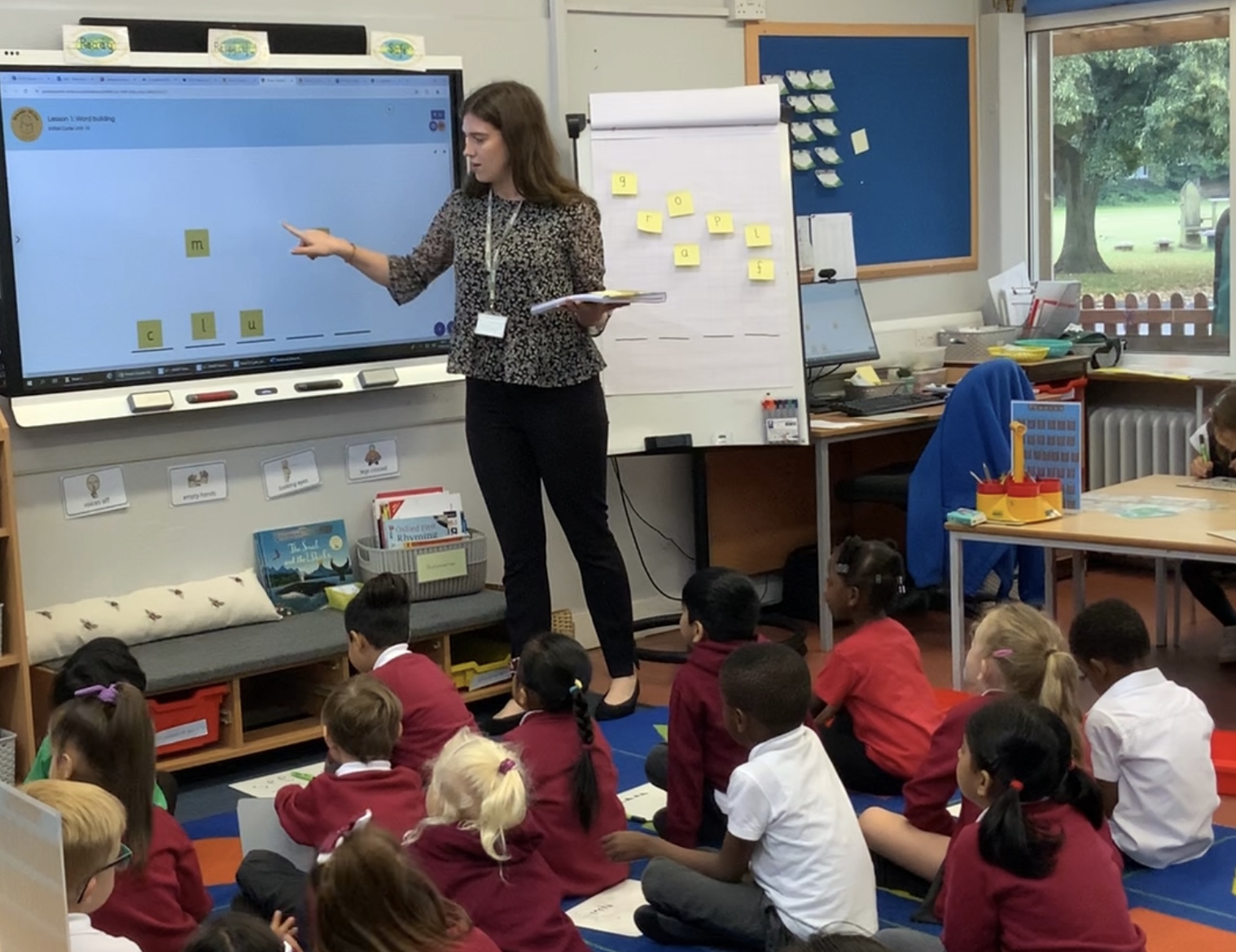
Intent
At South Camberley Primary and Nursery School, we teach phonics using a linguistic phonics programme called Sounds-Write. Sounds-Write is a very highly structured, multi-sensory approach to teaching children to read and spell. Its structure and simplicity makes it a programme accessible to all learners and helps them to make excellent progress with their reading and spelling.
The four key concepts children are taught are
- Letters are symbols that represent sounds.
- Sounds can be spelled using 1, 2, 3 or 4 letters.
- The same sound can be spelled in different ways.
- The same spelling can represent different sounds.
The three key skills children need to master are:
- Blending
- Segmenting
- Phoneme manipulation
Our ultimate aim is that children leave Year 2 fluent, confident and independent readers being able to apply their knowledge and skills across the curriculum.
Children in our Early Years begin with the initial code where they practise all three key skills whilst learning the 1:1 sound-spelling correspondences and securing their understanding of key concept 1.
This builds up confidence and phonic knowledge in a truly reversible system, enabling them to decode and encode a wide range of words and sentences. At first, children learn to read and write simple one syllable words with a CVC structure.
Complexity of word structure systematically builds up so that children apply their code knowledge to monosyllabic words with up to six sounds.
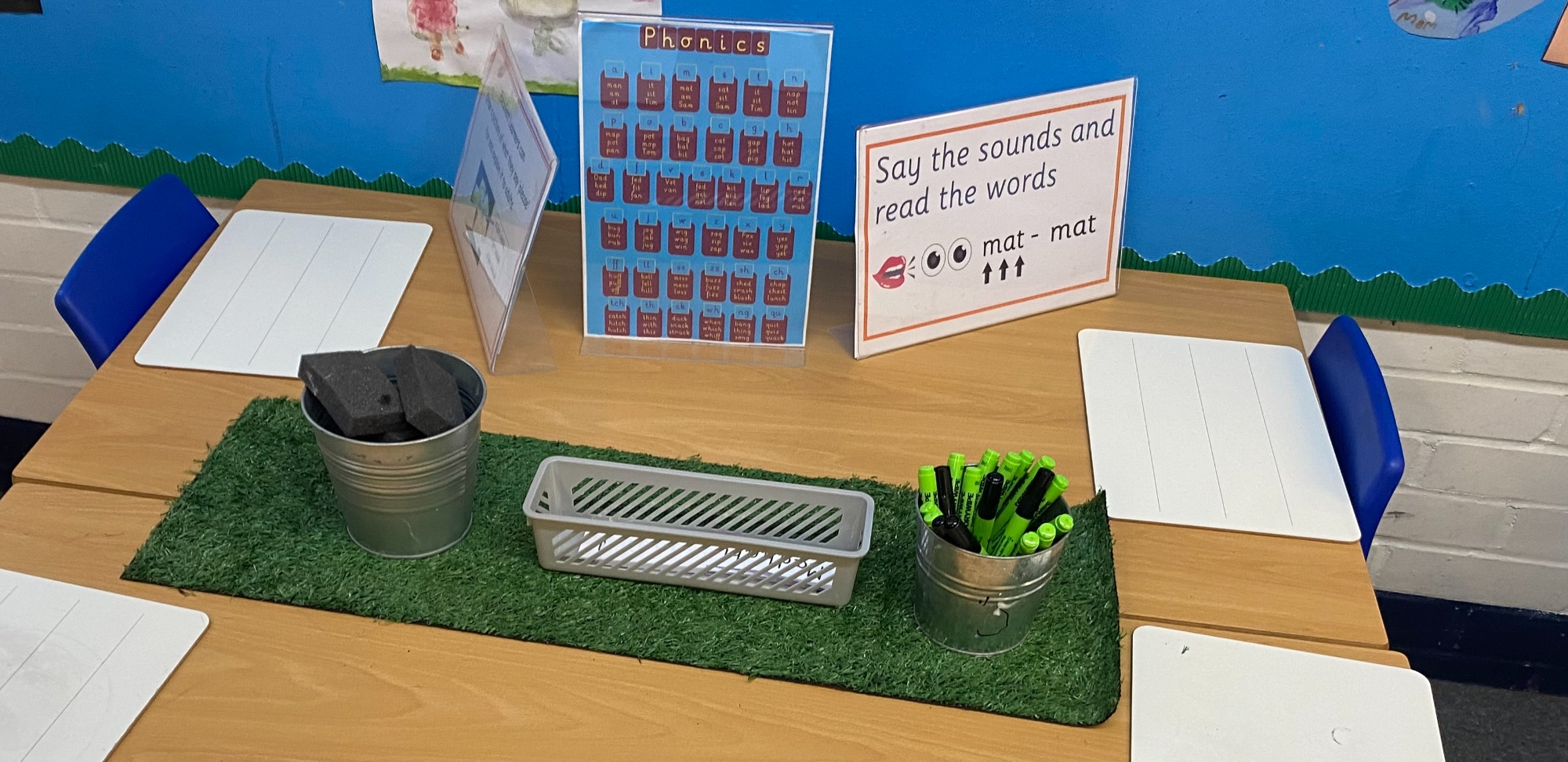
Implementation
How we teach Phonics - Early Reading
- Our strong foundations for teaching reading is through our daily phonics lessons, starting within our nursery setting.
- In nursery, children learn to identify environmental and percussive sounds with teaching of rhymes and songs to enable them to begin to make the distinction between different sounds.
- Children in Reception and KS1 are taught phonics daily in mixed ability settings.
- Children in Reception and KS1 have, up to, a 30-minute Sounds-Write session every day with KS1 having an afternoon follow-up session.
- Some children require more time and practice when learning to read and spell, and provision is made for them through ‘keep-up’ and ‘catch-up’ intervention sessions in addition to the whole class phonics sessions.
- At the end of each half term, children are assessed. This ensures the next steps are planned for to close any gaps within individual classes and individual children.
- Children have books matched to their reading ability.
- Workshops are used to provide information for parents to support at home.
- Training is provided for all staff to be able to deliver a consistent and progressive approach.
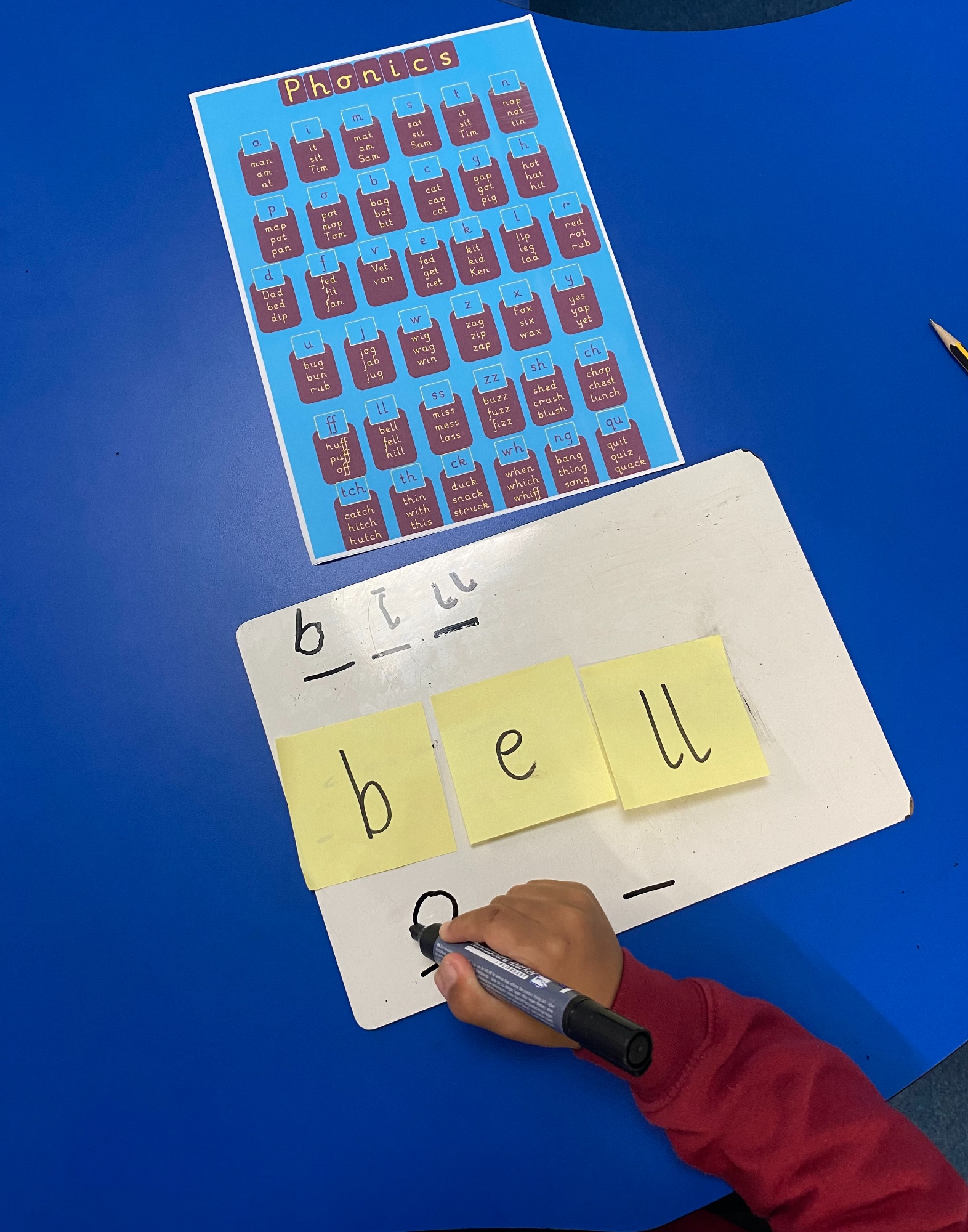
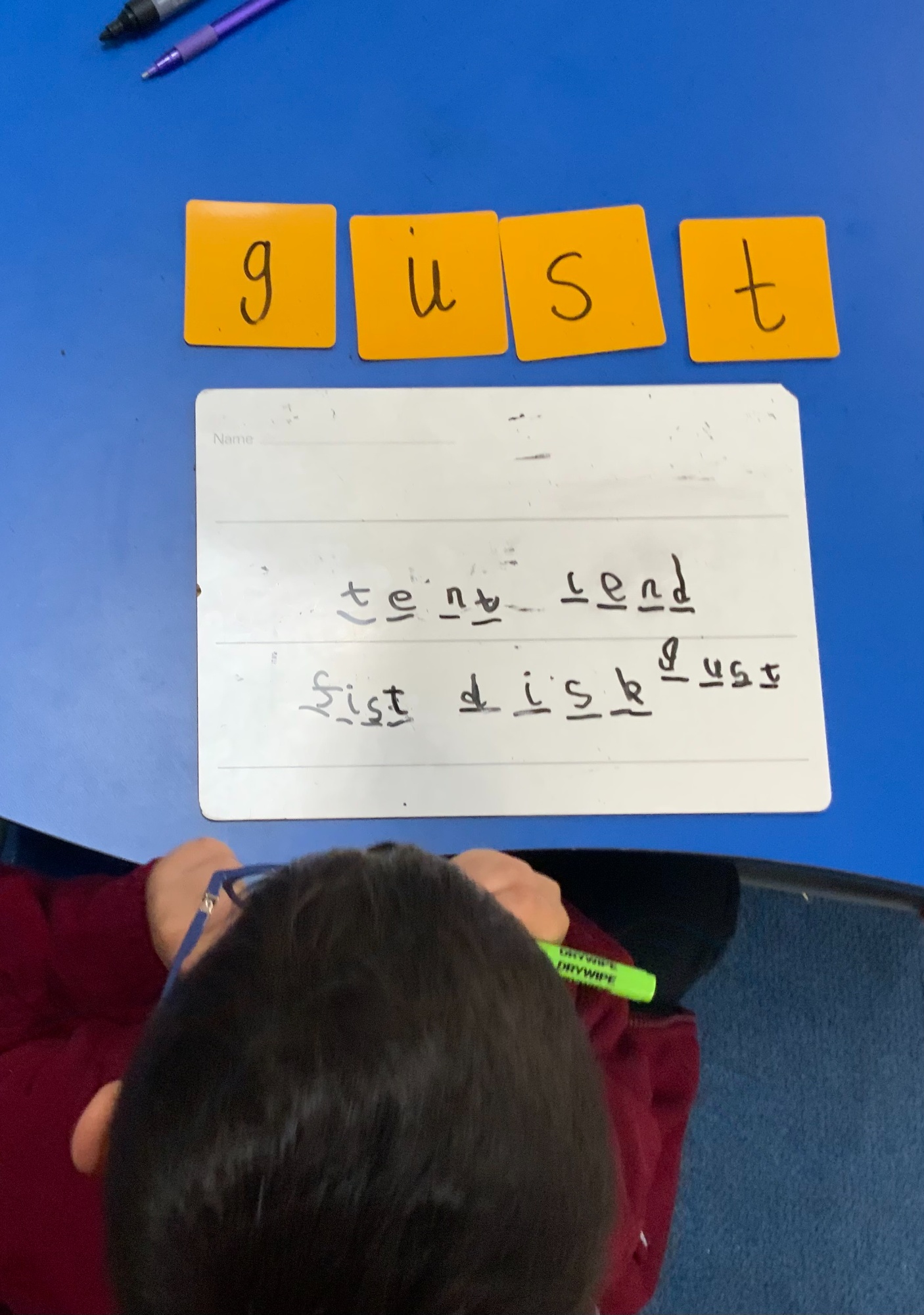
What does a lesson look like?
- All children take part in the phonics session
- All lessons are scripted so teaches show fidelity to the programme
- Teachers are consistent in our language
- 3 parts to the lesson – review, main learning, reading and writing in connected text
- Children ‘say the sounds and read the words’ and use that language themselves
- Error corrections are used by the teacher when a child makes a mistake
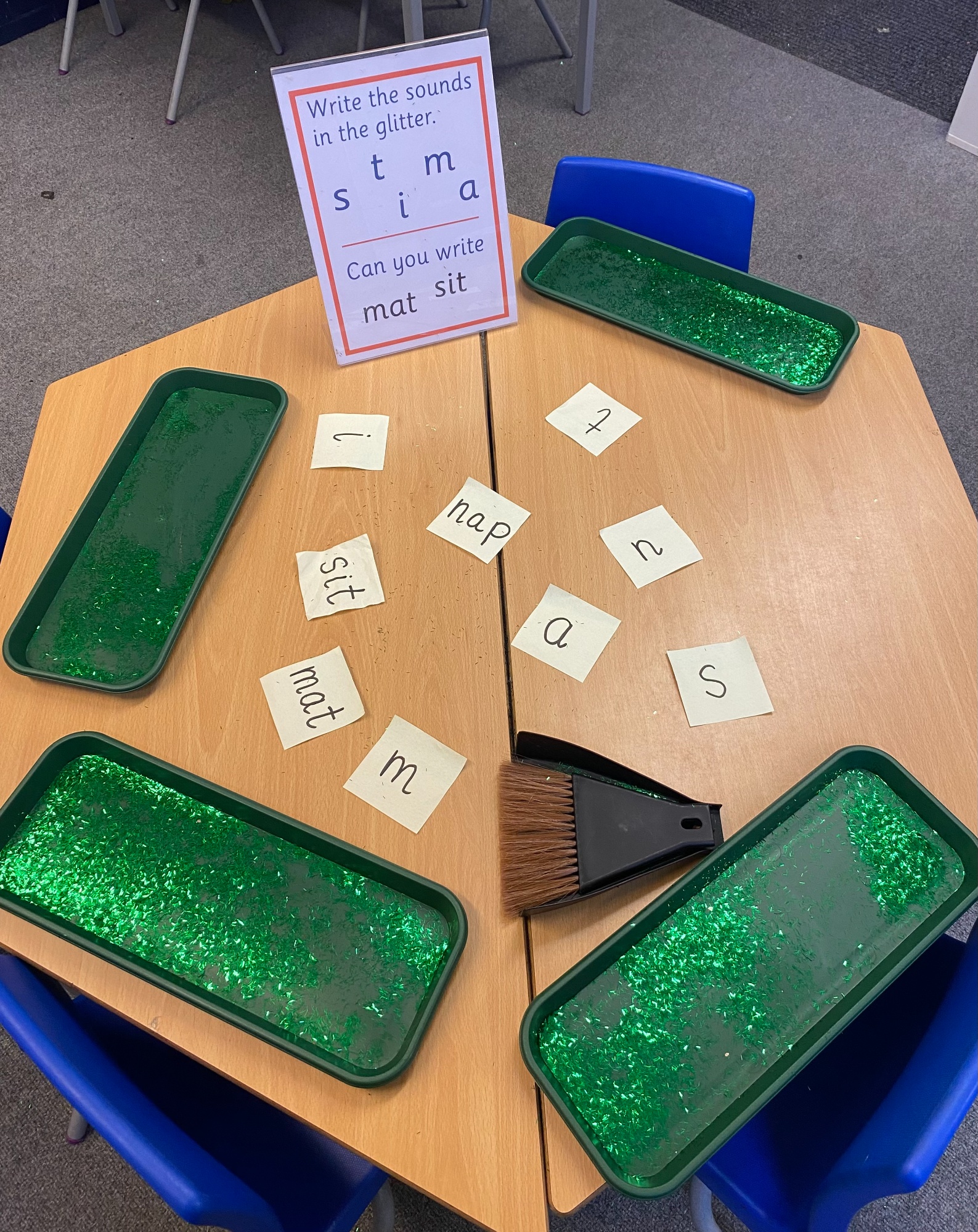
How can I help my child to learn to read and spell?
School and home can work together to support your child’s learning. Here are some ways in which you can help at home.
Saying the sounds
We want your child to learn that letters are symbols that represent sounds. When they see the letters < m > < a > < t >, we want them to say and hear the sounds /m/ /a/ /t/ and then blend those sounds to say and hear the word ‘mat’. Your child needs to say the sounds aloud and listen to hear the word. They need to learn to say the sounds very carefully – this means saying /m/ and not ‘muh’ when they see the spelling < m >. You can help your child by modelling the correct way to say the sounds.
Writing the spellings of the sounds
After your child has said the sounds and read the word, ask them to write the word saying each sound as they do this. You can model doing this when you write a word, too. Playing games with sounds is great fun and can help your child to understand that the words they use in everyday speech are made up of sounds and can be pulled apart (segmented) and put back together (blended). You can try this at home with words such as ‘sat’ segmented as /s/ /a/ /t/ and then blended as ‘sat’.
At the bottom of this page you will find the Initial and Extended Code posters we use around school and in classes.
We encourage all of our parents to access the free Sounds-Write online course for parents: Help your child to read and write so that they are well-informed about how best to support their children with their reading.
Please also see our phonics videos which help with the pronunciation of the sounds.
Phonics Videos for Parents
One Letter Making One Sound
Two Letters Making One Sound
Extended Code
Curriculum Overview


